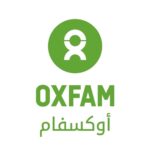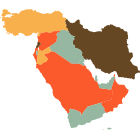Research on Resilience Assets in Lebanon
Background:
Oxfam commissioned Triangle to conduct research into the complex interplay of resilience, conflict drivers, and social entrepreneurship to support its emerging “Building Alternative Development Assets and Entrepreneurial Learning” initiative. This project centered on communities in Tripoli, el Minieh, Koura, Saadnayel, and Jebjenine, heavily impacted by the influx of Syrian and Palestinian refugees into Lebanon.
The Syrian crisis, then in its seventh year, had forced over five million refugees into neighboring countries, including Lebanon, straining public infrastructure and services. This placed immense pressure on already vulnerable host communities, leading to diminishing living standards, increased competition for livelihoods, and limited access to essential services. The crisis had shifted from an emergency situation to a protracted one, causing disruptions in market systems and persistent gaps in trade and livelihoods. Additionally, initial goodwill towards refugees had waned, giving rise to social volatility, inter-communal tensions, political instability, and economic stagnation. Community interactions had deteriorated, with rising insecurity and harassment among neighbors.
Recognizing these challenges, Oxfam sought to identify and understand the “resilience assets” within these communities, encompassing features and platforms that promote resilience. The research aimed to uncover these assets, assess their role in mitigating instability and conflict, and identify factors shaping their current state. Moreover, it explored the potential contribution of social entrepreneurship to bolstering resilience. This research initiative aimed to provide Oxfam with crucial evidence for effective program design, particularly focusing on sustainable training and empowerment programs tailored to youth and women. Simultaneously, it aimed to evaluate social stability factors and community resilience in countering the socio-economic drivers of radicalization within the target communities.
Triangle’s Assessment:
- Identification of Resilience Features: Triangle’s research team commenced the project by identifying key resilience features within the targeted communities. Through a meticulous process of interviews, surveys, and literature review, we aimed to discern and categorize these features. The goal was to provide Oxfam with a comprehensive understanding of the elements contributing to resilience on both an individual and community level.
- Examination of Resilience Assets: In addition to identifying these resilience features, our team conducted a thorough examination of the resilience assets present in the communities under study. These assets were evaluated based on their significance and impact, shedding light on how they have contributed to mitigating instability and conflict. This analysis helped in uncovering the strengths and vulnerabilities inherent in these assets.
- Factors Influencing Resilience Assets: Understanding the contextual factors affecting resilience assets was a critical aspect of our research. We delved into the intricate web of influences that shape the strength and sustainability of these assets in specific communities. By identifying these factors, we aimed to provide Oxfam with actionable insights into how to fortify and leverage these assets effectively.
- Baseline for Resilience and Social Enterprise Development: The research also entailed establishing a baseline for resilience and social enterprise development within the communities under scrutiny. This baseline served as a framework for future monitoring, evaluation, and learning. By capturing the existing conditions, we provided Oxfam with a solid foundation for measuring progress and impact.
- Assessment of Economic and Development Needs: Triangle’s research extended beyond resilience to explore the economic and development requirements essential for the growth of social enterprises within these communities. By pinpointing the assets and resources necessary for social enterprise development, we aimed to identify specific needs that would inform Oxfam’s future programs and initiatives.
Project:
Research on Resilience Assets in Lebanon

Location:
Lebanon

Service type:
Qualitative Research, Quantitative Research, Policy Advisory